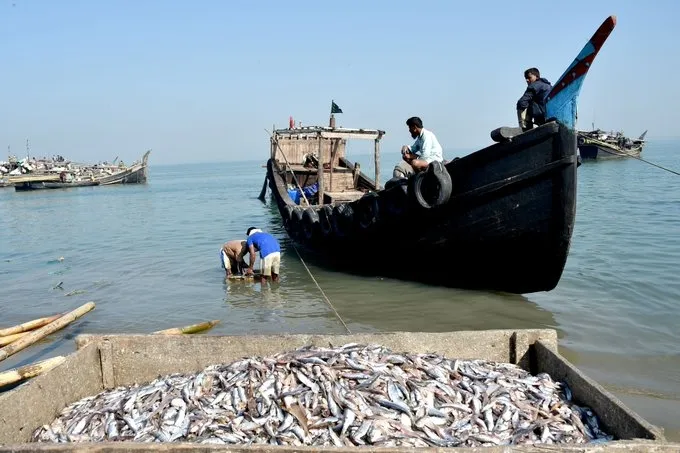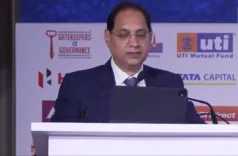How is the TN Fisheries Dept Enhancing Coastal Patrols to Combat Illegal Fishing During the 61-Day Ban?

Synopsis
Key Takeaways
- Tamil Nadu Fisheries Department has increased coastal patrols to combat illegal fishing.
- The annual fishing ban is in place from April 15 to June 14.
- Financial aid of Rs 8,000 is provided to registered fishermen.
- Over 550 mechanized boats are currently anchored in compliance with the ban.
- Local fishermen seek stricter enforcement to protect marine resources.
Chennai, May 5 (NationPress) The Tamil Nadu Fisheries Department has escalated its coastal patrol efforts in the waters of Thoothukudi due to numerous reports of illegal fishing during the 61-day annual fishing prohibition, aimed at preserving marine biodiversity.
The ban, which is in effect from April 15 to June 14, restricts mechanized vessels and trawlers from fishing within Tamil Nadu's territorial waters to allow fish populations to recover during the crucial breeding period.
Two mechanized boats have been assigned for sea patrols in Thoothukudi, with the operations led by the Assistant Director of Fisheries.
The patrol team comprises fisheries officials, personnel from the Coastal Security Group, and seven members from the local Fishermen Association to ensure transparency and effective coordination.
Officials from the Thoothukudi Fishermen Association reported that despite the ban, fishermen from Kanniyakumari and Kerala have been intruding into Thoothukudi waters.
Local fishermen have raised concerns that these encroachments undermine the purpose of the ban and threaten marine resources.
Pugal, secretary of the Tharuvaikulam Deep Sea Fishermen Welfare Association, stated: “The fisheries department must maintain constant vigilance. We have witnessed fishermen from the west coast entering our waters, which is unjust as we strictly adhere to the ban. We urge the government to bolster patrols by including the Indian Coast Guard and marine police to curb such violations.”
Officials confirmed that over 550 mechanized boats from Thoothukudi, Tharuvaikulam, and Vembar harbors are presently anchored in compliance with the ban.
The state government is also extending Rs 8,000 in financial aid to each registered fisherman during this period to support their livelihoods.
A senior official from the Fisheries Department remarked: “We are entirely committed to enforcing the ban and are promptly addressing any reports of illegal fishing. Patrols are conducted daily, and any violations will be dealt with decisively. We have also instructed fishermen to report any suspicious vessels without delay.”
Furthermore, the Fisheries Department has advised traditional fishermen in Tamil Nadu not to fish in the territorial waters of Andhra Pradesh, where a similar ban applies to country boats.
This advisory follows various incidents where Tamil Nadu fishermen faced attacks and had their catches confiscated by locals in Andhra waters.
“Although our traditional crafts are permitted to fish within Tamil Nadu waters, Andhra Pradesh has prohibited all fishing activities. We have cautioned our fishermen to avoid those waters to prevent conflicts,” said a retired Fisheries Department official.
The Tamil Nadu Marine Fishing Regulation Act, 1983, mandates this annual ban to protect marine biodiversity and promote sustainable fishing practices.
Enforcement measures include the anchoring of mechanized boats, coastal surveillance, and strict penalties for offenders.
With over 1,500 mechanized boats anchored along Tamil Nadu's coast during this period, fishermen's associations have reiterated their appeal for robust enforcement to maintain ecological balance and fairness.









